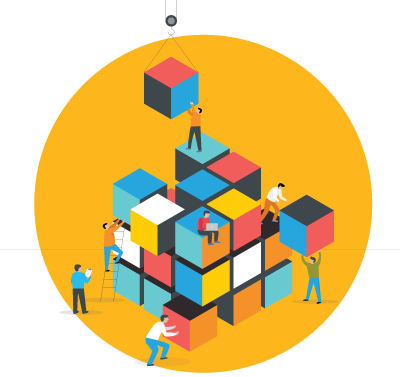Keynote speaker and author Jay Shetty once said, “The most expensive thing in the world is trust. It can take years to earn and just a matter of seconds to lose.” This quote has stayed with me over the years. It perfectly sums up the power, value, and fragility of building a culture of trust at work (and outside of work).
I think back to one of my first jobs where I experienced the antithesis of a trust-building leader and work culture.
My boss was new to leadership. He seemed to interpret his role as having line of sight into and control over every element of the business. He closely monitored when employees arrived at the office, took lunch breaks, and left for the day. In my first week, I made the mistake of being five minutes late and was sternly warned that this wouldn’t be tolerated.
He heavily critiqued my work outputs, undermining my confidence. The first time I led a phone call my boss sat extremely close to me for the duration of the call. Afterward, he asked why I was so formal and told me to use a “warmer tone.” I found this ironic since it was my discomfort and fear of his criticism that made my end of the conversation so unnatural.
The work environment was tense. Employees felt that they had to walk on eggshells with no room for innovation, failing forward, or creativity. We were all uncomfortable with our boss’ behavior.
Despite these challenges, this experience ignited my passion for leadership. I understood firsthand the impact and power that a leader can have. I lived through the perfect example of how NOT to build a culture of trust.

Benefits of a High-Trust Work Culture
As leaders, it is critical that we consider how we are building a culture of trust in our teams, workplaces, and organizations. There are many benefits of a high-trust work culture:
- Retention: When employees trust their colleagues, managers, and senior leaders, they are less likely to leave the organization. Why? Trust is built by letting others in. And when leaders let employees and teams into the decision-making process, explaining the why and how, employees can feel more engaged, united, and confident in the organization’s direction.
- Engagement: High-trust environments lead to team members who are eager to be involved, volunteer ideas for improvement, and feel ownership of their work. Studies have found that compared with low-trust companies, people at high-trust companies report: 74% less stress, 106% more energy, 13% fewer sick days, and 76% more engagement, among other benefits.
- Innovation: Team members can feel secure suggesting and trying new ideas—and trust that their leader will support them. Employees need trust from their manager that it’s okay to “fail forward.” They need to know that no one will be punished for trying a new idea or approach.
- Collaboration and Productivity: Employees may be less likely to wonder about hidden agendas when they trust their teams. They’ll also be less likely to gossip with team members about their thoughts surrounding any hidden agendas. These side conversations can be distracting, halting productivity, and stifling collaboration toward work-related goals.
Flexible Work Arrangements Help Employers Build Trust
The business impact is clear, but what about the implications on our people? It is safe to say that my mental health took a dive while working with a toxic boss. It can be easy to underestimate the role that leaders play in their team’s wellbeing.
Thankfully, many companies are starting to take employee wellbeing seriously. Offering flexible work is one way employers can address wellbeing and build trust with their teams. As many organizations are now operating in a hybrid or virtual environment, we have a golden opportunity to integrate flexible work practices for good.
When employers trust employees to do their work even when they can't physically see them at their desks, it empowers teams with a sense of autonomy and trust to be the professionals that they are.
Despite initial fears around the negative implications of flexible work on productivity, the data has shown the opposite to be true. When we give our teams space and trust, we can achieve even greater work outputs. If remote work is something your company has yet to implement, I encourage you to try a flexible or hybrid work model to enhance the trust and wellbeing of your teams.
Types of Trust in the Workplace
There are different types of trust that we should be mindful of:
- Contractual trust—trust of character. Do people do what they say they are going to do? Do managers and employees make clear what they expect of one another?
- Communication trust—trust of disclosure. How well do people share information and tell the truth?
- Competence trust—trust of capability. How well do people carry out responsibilities and acknowledge other people’s skills and abilities?

Who Is Responsible for Building a Culture of Trust?
We all have a role to play in building a culture of trust. Recently I was coaching a director who had moved from a team lead role into mid-level leadership in the last three months. She had taken the role with a new company under the assurance that her boss would provide her with coaching and guidance as she ramped up. Her human resources team was also doing their part and had set her up with coaching and feedback sessions with us.
During our sessions, she shared that since her first day, her boss had not turned up to any of her one-on-one meetings. She was struggling in a daunting, new role and her leader was M.I.A. On top of that, her new boss had publicly called her out for underperformance. In the space of three months, her leader had missed a critical opportunity to build trust and connection with her. As such, she is no longer with this company and is now looking for another role.
HR does have a significant role to play in the way that they prioritize selection, development, and succession management practices. However, these steps will only go so far if the leader isn’t there to deliver on their primary responsibility—to lead their team and build trust.
How to Build a Culture of Trust with Your Employees
Here are some practical things you can do today to build trust with your teams:
- Foster open communication.
- Be reliable and consistent.
- Treat everyone with respect and fairness.
- Show confidence in others.
In addition, DDI provides us with five Key Principles to communicate effectively and build trust in every interaction:
- Maintain or enhance self-esteem.
- Listen and respond with empathy.
- Ask for help and encourage involvement.
- Share thoughts, feelings, and rationale. (to build trust)
- Provide support without removing responsibility. (to build ownership)

While all five can be used to build trust, the two that are most powerful for building a culture of trust are "sharing thoughts, feelings, and rationale” and “listening and responding with empathy.” These Key Principles support open, two-way communication and establish mutual respect, providing the foundation for trust during the interaction and beyond.
Trust Is Built on Connection
We can all be mindful of and improve our interaction skills to build trust. Remember, trust is ultimately based on a drive for connection.
Consider an open, trusting relationship you have with a colleague or friend. This person has likely shared thoughts, opinions, perspectives, and feelings with you. After listening to your friend, you probably would respond with empathy, if appropriate, using both the facts and feelings you heard. Because your friend has trusted you enough to share personal thoughts and feelings, you may have trusted them enough to do the same.
Trust ultimately comes down to our ability to build authentic connection, one of our most fundamental and human needs. Think about the value you can add as a leader if you are able to fulfill this fundamental need for your team. Your trust can help employees feel valued, appreciated, and fulfilled in their professional lives. It can also motivate employees to put their best foot forward in service of their leaders and organizations.
Learn how to create an inspiring organizational culture that’s built on trust.
Tara Robinson is a consultant with DDI Australia. Her true passion is in working with leaders to create more connected, kind, and engaged workforces. She enjoys the design and delivery of leadership programs and one-on-one feedback sessions. Her happy place is at the beach with her family, where you will see her encouraging her sensitive four-year-old son to put his head underwater, whilst simultaneously pulling her fearless one-year-old daughter out of the water. Connect with Tara: https://www.linkedin.com/in/tararobinsonddi/

